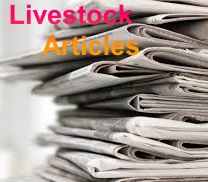Future-proofing The Agriculture Sector
Future-proofing the agriculture sector
By Glenneis Kriel | 13 October 2024 | 1:29 pm
The agriculture sector will have to reconstruct and re-engineer itself to remain a force 10 and more years from now, according to Johann Kotzé, CEO of Agri SA.
Speaking at Agri SA’s Green Horizons Congress, recently held in Cape Town, Kotzé said that people used to take agriculture for granted, but have started recognising its true importance during the COVID-19 pandemic.
To remain a force, he said the sector would have to find ways to produce enough food to feed the growing world population. The world population amounted to 6,1 billion people in 2000 and reached 8,2 billion in 2024. It is expected to reach 9,7 billion by 2050, with about 2,5 billion of those people living in Africa, according to United Nations’ World Population Prospects 2024.
Toward this goal, the sector would have to analyse the way in which food is produced and improve efficiencies and reduce wastage. Kotzé pointed out that about 30% of food was wasted from field to fork.
Production should increase in an environmentally sustainable way, Kotzé said.
“We need to look after our natural resources. Being environmentally friendly is not a ‘happy’ coincidence. Humanity will disappear in the next 50 years if we do not look after our environment.”
He added that some farmers were still arguing over whether climate change really existed and the urgency to act upon it. For consumers, however, it is becoming increasingly important to know that their food is produced in an environmentally responsible manner, with this demand also driving retail trends.
“Let us not argue whether climate change is real or not, but rather focus on the perception that it is real, and adapt to this,” he said.
It is still uncertain what food systems will look like in the future, with lots of efficiencies driven by new and improved technologies. Relationships, however, will remain the foundation of food systems.
“Relationships are needed to understand the value chain and how it is changing. Instead of focusing on what is best for yourself or your company, focus on what you or your company can do to move agriculture as a whole forward. Collectively we can make a difference,” Kotzé said.
He added that the sector would have to reconsider the meaning of food security. These days it not only meant access to food, but access to affordable, healthy food that met the dietary needs of people, and was produced in a sustainable measure.
He referred to the Global Food Security Index 2022, which gave sub-Saharan Africa a 47% score, the lowest of all the participating regions, with food affordability being one of the biggest issues.
The situation is not as dire in South Africa, which scored 61,7% and was ranked 58th out of 113 countries. Kotzé said South Africa scored okay in terms of food quality and safety, but low on especially sustainability and adaptation because of the way in which we worked and preserved water, and the volatile production due to adverse weather.
Food availability is also a problem, as healthy food is not available to everybody in the country.
Kotzé concluded by saying that food security was the agriculture sector’s means to contribute to a different and better world: “You don’t have to tell a farmer to produce more food, as that is his or her passion. To enable them to produce more, however, the sector needs to be seen and treated like a national asset.”

.jpg)






